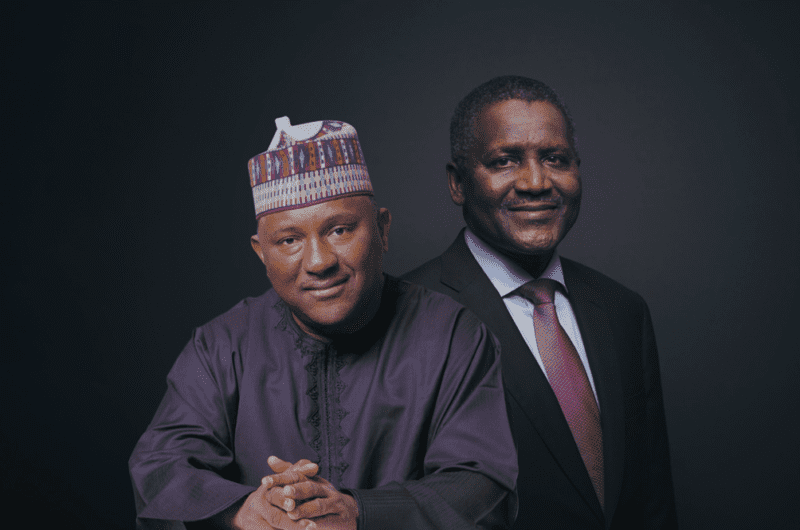National Issues
Dangote vs. Abdulsamad: The Refinery Rivalry Shaping Africa’s Energy Landscape -By Ishaku Adams
The Dangote vs. Abdulsamad business competition in the refinery sector is a testament to the entrepreneurial spirit and commitment to national development exhibited by these two titans of industry. As their refineries near completion and begin operations, the impact on Nigeria’s energy landscape will be profound, setting the stage for a new era of self-sufficiency and economic prosperity.

In the quest for energy self-sufficiency and economic empowerment, Aliko Dangote and Abdulsamad Rabiu, two prominent Nigerian businessmen, have embarked on a fierce competition in the arena of oil refineries. This battle for supremacy in the refining industry not only reflects their ambitious visions for the energy sector but also has far-reaching implications for Nigeria and the entire African continent.
Aliko Dangote’s eponymous refinery, aptly named the Dangote Refinery, stands as one of the largest and most ambitious industrial projects in Africa. Located in Lekki, Nigeria, this mega-refinery is designed to have a refining capacity of 650,000 barrels per day, making it a game-changer in the oil and gas industry. Dangote’s vision extends beyond national borders, with plans to transform Nigeria into a net exporter of refined petroleum products.
In response to Dangote’s ambitious venture, Abdulsamad Rabiu entered the refinery race with the BUA Refinery. Situated in Akwa Ibom, Nigeria, the BUA Refinery aims to refine 200,000 barrels per day, contributing significantly to Nigeria’s refining capacity. Abdulsamad’s foray into the refinery business demonstrates a commitment to diversification within the energy sector and reducing Nigeria’s dependence on imported refined petroleum products.
The Dangote-Abdulsamad refinery rivalry holds the promise of transforming Nigeria from a net importer of refined petroleum products to a self-sufficient and potentially export-oriented nation. The increased refining capacity is expected to enhance energy security, reduce the nation’s reliance on foreign refineries, and mitigate the economic impact of fluctuating global oil prices.
Both Dangote and Abdulsamad recognize the potential of their refinery projects to stimulate economic growth and job creation. The construction and operation of these mega-refineries are massive undertakings that require significant manpower, providing employment opportunities for a large workforce. Additionally, the multiplier effect on ancillary industries further contributes to the overall economic development of the regions in which these refineries are located.
Despite their shared goal of bolstering Nigeria’s refining capacity, Dangote and Abdulsamad face challenges ranging from regulatory hurdles to the complexities of managing such colossal projects. However, these challenges also present opportunities for collaboration, knowledge sharing, and industry-wide improvements that could benefit the entire nation.
The Dangote vs. Abdulsamad business competition in the refinery sector is a testament to the entrepreneurial spirit and commitment to national development exhibited by these two titans of industry. As their refineries near completion and begin operations, the impact on Nigeria’s energy landscape will be profound, setting the stage for a new era of self-sufficiency and economic prosperity. The outcome of this rivalry extends beyond individual success, holding the potential to reshape Africa’s energy dynamics and inspire a new wave of industrialization on the continent.
Ishaku Adams from Mass Communication department Borno State University, Maiduguri.

















